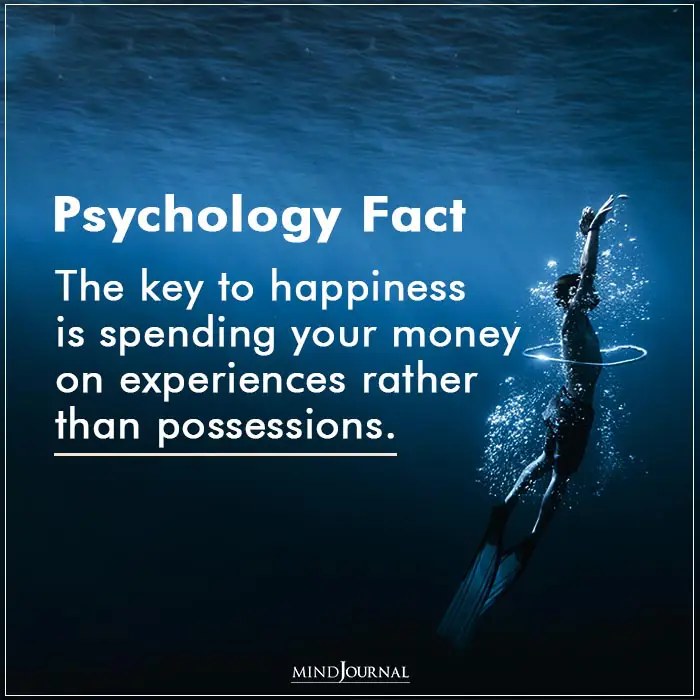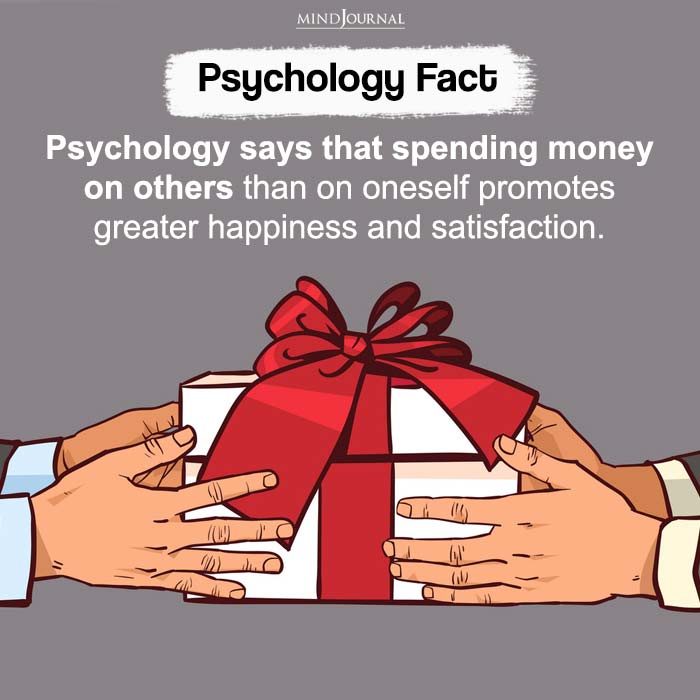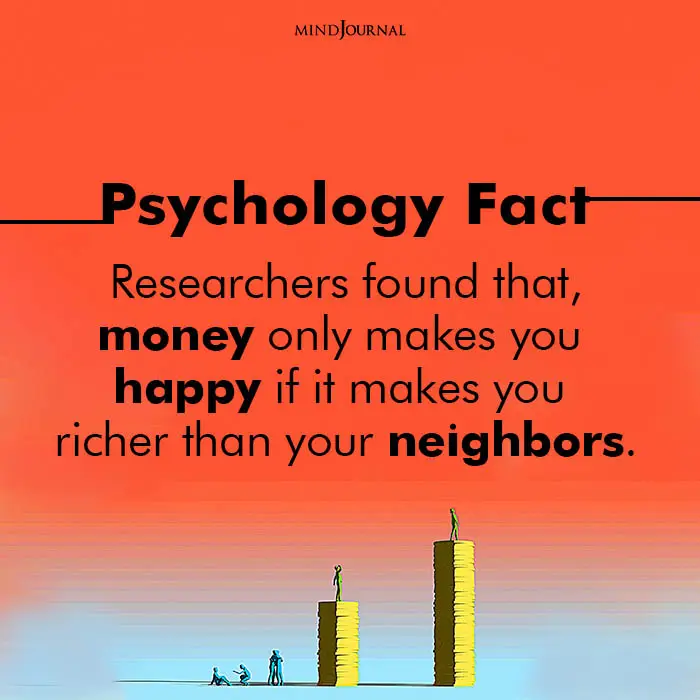Money can’t buy happiness, or so the saying goes. But is there any truth to this age-old adage? What if I told you money does buy happiness? The relationship between money and happiness is complex and not that straightforward.
Those who believe money cant buy happiness and those who believe money buys happiness are both equally right. The reality is that money is important for happiness, but whether money brings happiness or not is something we need to find out.
In a world where wealth seems to equal success, it’s easy to wonder about the relationship between money and happiness. Let’s explore how money and happiness are intertwined together.
Money cant buy happiness. Or can it?
Does money buy happiness? This is a question that has been debated for ages. While money can provide comfort and opportunities, it does not necessarily translate directly into happiness.

Do you think money can buy you happiness? Well, while money can make life better, money doesnt buy happiness. There are several reasons for this.
1. Beyond a certain level, money has diminishing returns on happiness
According to relationship between money and happiness research, an increase in income can contribute to greater happiness up to a certain point, but it does not guarantee happiness for everyone.
For people who are the least happy, their level of happiness is observed to increase with income until reaching $100,000. Beyond this point, however, their happiness does not show any additional growth as their income continues to rise.
For basic needs and some degree of comfort, more money does correlate with greater happiness. This suggests that money and happiness are correlated up to a certain point, but the link becomes weaker thereafter.
2. How we spend our money matters more than how much we earn
Evidence shows that spending money on experiences and relationships, rather than material goods, tends to bring more enduring joy and satisfaction.
Experiences and social connections fulfill basic psychological needs better than possessions. Hence, how wisely we spend our cash impacts happiness more than money itself.
Related: How To Boost Your Net Worth: 6 Ways To Upgrade To A Net Worth Mentality
3. Happiness comes from within
Money is an external factor that can help improve our circumstances but cannot change our mindset. Happiness depends more on cultivating mental habits like gratitude, mindfulness, and perspective.
Money cannot buy these inner attributes. So, while income plays a supporting role, mindset remains the key driver of happiness.
While this might give you some idea about the relationship between money and happiness, it is a lot more complex and deeper. No, money doesn’t buy happiness, but money brings happiness for sure. Let’s explore how.
Is money important for happiness?
Yes, money is important for happiness. Regardless of the fact that money doesn’t buy happiness, it is crucial for being happy. Perhaps this is why many people believe money does buy happiness.
If you believe money can’t buy happiness, here are some ways money, wealth and abundance can make us happier in life that will help you gain a new perspective about the impact of money in our lives-
1. More options and choices
Money provides choices and opportunities to pursue hobbies, travel, and engage in activities that bring joy. This is one of the main reasons why many people believe money buys happiness.
However, simply having money does not guarantee happiness – one must utilize the opportunities wisely.
2. Improved self-confidence
According to relationship between money and happiness research, money can boost self-esteem by satisfying feelings of adequacy and status. But lasting self-worth comes from within, not from money or possessions. Materialistic goals often prove unsustainable for happiness.
3. Offers practical solutions
Wealth can help solve practical problems that cause stress and unhappiness. You can approach your problems in a smarter way when you have resources available at your disposal.
However, intangible issues like self-doubt, insecurity and negative thinking require internal solutions beyond what money can buy.
4. Enhances generosity
Money and happiness are related in more ways than we realize. Money allows for greater generosity and philanthropy, which research suggests improves happiness. Having ample resources enables impactful contributions to society through philanthropy, mentorship and advocacy.

But for many wealthy individuals, a sense of purpose comes more from meaningful work rather than money itself. They are no happier than average income earners, revealing non-financial factors at play.
5. Lowers stress
When you have an abundance of wealth, you don’t have to worry about your financial stability and security. You feel less worried about your family and loved ones. Achieving financial security strengthens mental health by reducing some stressors.
However, developing cognitive skills like mindfulness, gratitude and optimism remain important for happiness, regardless of income level.
Poverty poses real obstacles to happiness due to financial stress, scarcity and limited choices. But happiness also depends on perspective, priorities, mindset, resilience and social support – which can still enable joy and fulfillment even in financially difficult circumstances.
Related: How Saving Money Affects Your Happiness And Psychology
While money doesn’t buy happiness directly, but money brings happiness in ways that can make life less stressful for us and our loved ones.
6. Supports achievements
Money can increase happiness by funding activities that align with our values, interests and identities. When you have wealth on your side, you feel more confident about pursuing your goals and dreams. This can make someone believe that money does buy happiness.
You feel more courageous about taking risks as you have the finances to back you up during initial hiccups. But true passion and purpose ultimately comes from within, motivating us independently of financial gains.
7. Supports values
Having money that aligns with one’s core values and purpose tends to bring more joy than wealth alone. When money supports living in line with what truly matters, it can boost well-being.
8. Improved health
Money provides access to healthcare, which can improve both physical and mental wellbeing. However, happiness also depends on factors beyond health like having meaningful social connections and a sense of purpose.
9. Hobbies and passions
Relationship between money and happiness research shows that wealth enables people to pursue hobbies and interests, which can promote happiness. But intrinsic motivation and passion for an activity matters more for joy than the money required to engage in it.
10. Increases independence
Having extra resources can give people a sense of freedom and autonomy in life. However, psychological needs for competence, autonomy and relatedness underlie happiness, and money cannot fulfill these needs on its own.
11. Better social status
Money helps people achieve social status, which can temporarily boost happiness. But long-term fulfillment requires intrinsic goals focused on personal growth rather than extrinsic goals centered on status and image.

12. Meaningful experiences
Wealth allows people to travel and see the world, offering potentially enriching experiences. But research finds that meaningful social interactions and helping others may promote greater happiness than tourism and travel.
13. Promotes personal development
Financial resources can fund opportunities for personal growth and development. However, actively cultivating virtues like gratitude, kindness and resilience remains key for a happy and meaningful life, independently of income.
14. Better work-life balance
Financial resources can help people achieve a work-life balance with more flexibility and free time. But having clear priorities and intrinsic motivation, not money itself, ultimately enables people to optimally balance work and the rest of life.
15. Early retirement
Money can help people retire earlier, giving them more free time. But research finds that those who continue working past traditional retirement ages often report higher life satisfaction, likely due to the mental stimulation, social interaction and sense of purpose that work provides.
16. Easier to seek support
Wealth allows people to avoid many of life’s hassles by paying others to handle chores and responsibilities. However, actively participating in life’s challenges often builds skills, resilience and a sense of achievement that promote happiness.
While money and resources undeniably impact happiness, so do many inner qualities and life priorities that lie beyond the realm of wealth. A balanced, multidimensional approach – addressing both outer and inner factors – likely maximizes both money and happiness in life.
Are you now convinced that money buys happiness? Or do you still think money can’t buy happiness?
Related: Spiritual Meanings Of Finding Money On Your Path: 7 Divine Messages
Money and happiness are related but not equivalent
We can’t deny the fact that money is important for happiness, but we also need to realize that money doesnt buy happiness necessarily. If you believe that money buys happiness, then why do we feel sad and depressed on days when nothing goes right?
Why do we even have bad days when we have wealth on our side? No, money doesnt buy happiness. Money attracts happiness. Money can buy you happiness when you know how to use, invest and spend your money. But it doesn’t mean that just because you have money, you will be happier.
Money brings happiness but that doesn’t mean money equals happiness. Money can improve happiness by addressing basic needs, providing opportunities, and enhancing choices.
However, beyond a certain income, other non-financial factors like experiences, relationships, and mindset begin to impact happiness more significantly.
True happiness stems from internalizing the right attitude and perspective, which money alone cannot provide. Therefore, for optimal joy and fulfillment, achieving financial security should be balanced with cultivating healthy habits, meaningful activities, and strong connections.
Striking this balance between “inner wealth” and “outer wealth” is the key to maximizing both money and happiness.

Why happiness is NOT limited to money
Money doesnt buy happiness. But money can buy you happiness. Confused? They key lies in understanding how you use your money.
While money can certainly make your life easier and provide you opportunities to experience happiness, money can’t buy happiness per se.
Relationship between money and happiness research reveals that money can improve your quality of life and opportunities, but it does not necessarily translate into long-term joy and fulfillment.
Here are 14 reasons why money and happiness may not be as correlated as we may want to believe –
1. Basic needs
Money does correlate with happiness up to a point when it comes to meeting basic needs like food, shelter and security. However, beyond that, the link becomes weaker.
2. Diminishing returns
Research shows that beyond a certain income level, the impact of additional money on happiness plateaus and even declines. After basic needs are met, more wealth yields fewer improvements in well-being. This is due to hedonic adaptation, social comparison, and materialism.
However, using wealth wisely to strengthen relationships and create experiences can still enhance happiness.
3. Comparisons
People with money tend to compare themselves to those with more wealth, leading to feelings of inadequacy and envy. Since their happiness depends on comparisons, money loses its ability to satisfy at higher income levels.
4. Hedonic treadmill
We quickly adapt to a higher standard of living, raising our expectations and needs accordingly. This “hedonic treadmill” effect limits how much lasting happiness additional money can actually buy.
5. Experiences over things
Spending money on experiences and quality time with loved ones tends to bring more enduring satisfaction than material possessions. Experiences fulfill basic psychological needs better than objects.
6. Relationships
Strong social connections and relationships contribute more to happiness than money alone. While wealth can help nurture relationships, it is relationships that ultimately matter most for joy and meaning.
7. Mindset
Ultimately, happiness depends more on one’s mindset – cultivating gratitude, mindfulness, resilience and perspective – than money itself. Money cannot buy these key inner attributes related to happiness.
8. Goals
Intrinsic goals focused on personal growth, relationships and community tend to promote more happiness than extrinsic goals centered around money, image and status. Intrinsic goals are less dependent on income levels.
9. Priorities
Having life priorities beyond making and spending money – like meaningful work, hobbies and causes – contributes significantly to happiness, independently of wealth.
10. Health
While poverty poses health risks, research finds little correlation between wealth and happiness beyond good basic health. Money cannot buy optimal health and longevity on its own.
11. Control
Having a sense of autonomy, competence and control over one’s life, work and environment contributes strongly to happiness – regardless of income levels. Money itself does not create this sense of control.
12. Balance
Striking a balance between “inner wealth” like mindset, values and relationships, and “outer wealth” like income and resources, may maximize both money and happiness. Neither factor alone is sufficient.
Related: Why We Should Invest More On Experiences And Less On Things Reveals Research
13. Gratitude
Wealth disparity and economic injustice in the world can dampen happiness, even for those who are well-off. Feeling grateful for what we have and compassion for others improves wellbeing, regardless of income.
14. Mental health issues
Wealth insulates people from many life stresses like financial insecurity and economic scarcity. But even the rich experience emotional challenges like loneliness, emptiness and loss of meaning.
While money undeniably impacts happiness, many non-financial factors also shape a meaningful and joyful life. True and lasting happiness requires a balance of inner development and outer conditions – a balance that money alone cannot buy.
Money and happiness are related, but happiness requires much more than money.

How to balance pursuit of wealth and pursuit of happiness
There are a few ways we can balance our pursuit of wealth with our pursuit of happiness:
1. Be grateful for what we have
Cultivate an attitude of gratitude for your health, relationships, opportunities, and even income. Happiness comes more from appreciating what we have than constantly desiring more.
2. Define success beyond money
Have a wider definition of success that includes health, relationships, and personal growth. Set goals in these domains, not just financial ones.
3. Spend money on experiences, not just things
Prioritize spending that strengthens relationships and creates meaningful memories. Research shows this contributes more to happiness than material purchases.
4. Pursue work you find meaningful
Even if it pays less, find a job or career that aligns with your values, interests and strengths. Meaningful work often brings higher life satisfaction.
5. Develop inner wealth
Cultivate virtues like mindfulness, resilience and compassion. Nurture relationships and find a higher purpose. “Inner wealth” is a major contributor to happiness, independent of income.
6. Engage in acts of kindness
Volunteering, showing gratitude, and helping others boosts both happiness and sense of purpose – regardless of income level. It keeps our pursuit of wealth in perspective.
7. Strive for work-life balance
Ensure you make time for relationships, hobbies, self-care and reflection. A balanced life promotes happiness more than wealth alone.
Related: The Surprising Health Benefits of Laughter: 4 Proven Facts According to Gelotology
8. Set an income threshold
Decide the minimum income you need to cover basic needs and some comforts, then avoid chasing wealth above that point. Focus on other pursuits instead.
By reframing our definition of success, spending wisely, finding meaningful work, cultivating inner wealth, engaging in acts of kindness and striving for balance – we can satisfy our basic desire for financial security while placing greater emphasis on the true sources of happiness and fulfillment in life.
How to increase happiness without money
There are many ways to increase happiness that don’t involve spending money. Here are a few ideas:
1. Spend time with loved ones
Spending quality time with friends and family can bring a lot of joy and fulfillment.
2. Practice gratitude
Focusing on what you have rather than what you lack can lead to a more positive outlook on life.
3. Engage in hobbies
Engaging in activities you enjoy, such as reading, playing sports, gardening, or playing music, can provide a sense of purpose and satisfaction.
4. Get exercise
Exercise releases endorphins, which can improve your mood and decrease stress.
5. Volunteer
Helping others can be a rewarding experience that provides a sense of purpose and fulfillment.
6. Practice mindfulness
Taking a few minutes each day to meditate or practice mindfulness can help reduce stress and increase happiness.
7. Build healthier relationships
At the end of the day, regardless of how much money you have or not, we all want to be around people who love and care about us. People who don’t judge us but are straightforward about sharing positive feedback that help us improve.
Meaningful relationships make life valuable and purposeful more than money ever can.
Related: How To Deal With Money Issues In A Relationship

Money doesn’t buy happiness, but money is important for happiness
Money can buy you happiness.
Money cant buy happiness.
Whether you still believe that money cant buy happiness or that money does buy happiness, the argument will continue for years to come. At the end of the day, it depends on how you define “happiness” and how you spend your money.
Remember, money can’t buy everything, and there are many ways to find happiness that don’t involve spending a dime.
While money can certainly make life more comfortable, it’s not the only factor in determining happiness. By focusing on the things that truly matter, such as relationships, gratitude, and personal growth, we can improve our well-being without spending a dime.









Leave a Reply
You must be logged in to post a comment.